
Malaita Province: The Heartbeat of the Solomon Islands
Malaita Province is a captivating destination in the Solomon Islands, known for its rich culture and stunning natural beauty. This remote paradise offers an authentic experience, with vibrant local traditions and pristine landscapes that will leave a lasting impression on every visitor. One of the highlights of Malaita is its traditional villages, where you can immerse yourself in the local way of life. The people of Malaita are known for their warm hospitality and unique customs, such as the intricate panpipe music and the traditional art of shell money making. Visiting these villages offers a glimpse into a culture that has been preserved for generations. Nature lovers will find Malaita a haven of unspoiled beauty. The province is home to lush rainforests, crystal-clear rivers, and stunning waterfalls. Diving and snorkeling enthusiasts will be enthralled by the vibrant coral reefs teeming with marine life. For those seeking adventure, trekking through the rugged terrain offers breathtaking views and an opportunity to connect with nature on a deeper level. Malaita's picturesque coastline and serene beaches provide the perfect setting for relaxation. Whether you're lounging under the shade of a palm tree or exploring the turquoise waters, the tranquility of this destination is unmatched. The local seafood is a culinary delight, with fresh catches prepared in traditional ways that will tantalize your taste buds.
Local tips in Malaita Province
- Respect local customs by asking for permission before taking photos of people or their property.
- Carry cash, as ATMs and credit card facilities are limited in the province.
- Wear comfortable shoes suitable for trekking if you plan to explore the rainforests and waterfalls.
- Try the local seafood dishes, especially those featuring freshly caught fish.
- Bring eco-friendly sunscreen to protect the coral reefs while snorkeling or diving.
- Learn a few basic phrases in Pijin, the local language, to enhance your interactions with residents.
Malaita Province: The Heartbeat of the Solomon Islands
Malaita Province is a captivating destination in the Solomon Islands, known for its rich culture and stunning natural beauty. This remote paradise offers an authentic experience, with vibrant local traditions and pristine landscapes that will leave a lasting impression on every visitor. One of the highlights of Malaita is its traditional villages, where you can immerse yourself in the local way of life. The people of Malaita are known for their warm hospitality and unique customs, such as the intricate panpipe music and the traditional art of shell money making. Visiting these villages offers a glimpse into a culture that has been preserved for generations. Nature lovers will find Malaita a haven of unspoiled beauty. The province is home to lush rainforests, crystal-clear rivers, and stunning waterfalls. Diving and snorkeling enthusiasts will be enthralled by the vibrant coral reefs teeming with marine life. For those seeking adventure, trekking through the rugged terrain offers breathtaking views and an opportunity to connect with nature on a deeper level. Malaita's picturesque coastline and serene beaches provide the perfect setting for relaxation. Whether you're lounging under the shade of a palm tree or exploring the turquoise waters, the tranquility of this destination is unmatched. The local seafood is a culinary delight, with fresh catches prepared in traditional ways that will tantalize your taste buds.
When is the best time to go to Malaita Province?
Iconic landmarks you can’t miss
Serah's Lagoon Hideaway
Experience the tranquil charm of Serah's Lagoon Hideaway in Auki, where comfort meets the beauty of the Solomon Islands.

Surabuta Malaita Solomon Islands
Discover the tranquil Surabuta in Radefasu, Solomon Islands – a sacred place of worship surrounded by breathtaking nature and rich cultural heritage.

Unmissable attractions to see
Solomon Peace Memorial Park (Japanese war memorial)
Explore the Solomon Peace Memorial Park in Honiara, a historic tribute to peace and resilience from World War II, surrounded by beautiful landscapes.
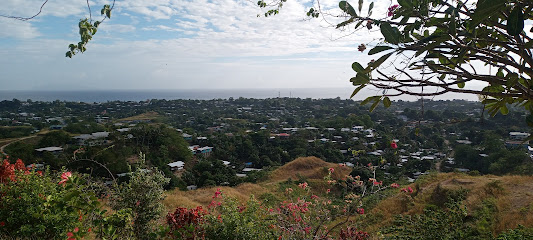
Indefinite Island
Discover the serene beauty of Indefinite Island in Levuka, where tranquil beaches meet lush landscapes for a perfect getaway.
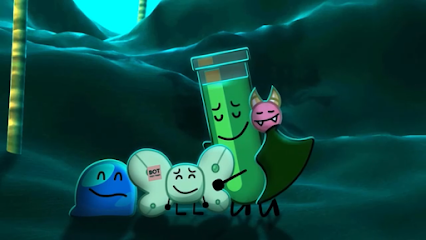
Graceland Nature Park
Explore the tranquil beauty and rich wildlife of Graceland Nature Park in Mbelaha, the perfect escape for nature lovers and adventure seekers.
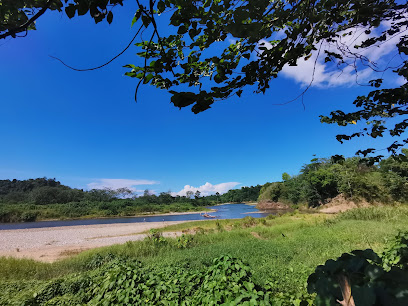
S.I. Visitors Bureau
Uncover the wonders of the Solomon Islands at the S.I. Visitors Bureau, your one-stop destination for travel tips and local insights in Honiara.
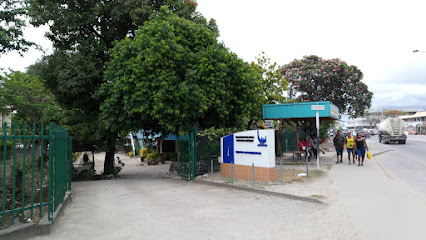
Tenaru Waterfalls
Explore the enchanting Tenaru Waterfalls, a serene escape in Mbelaha, Solomon Islands, where nature's beauty and tranquility await every traveler.
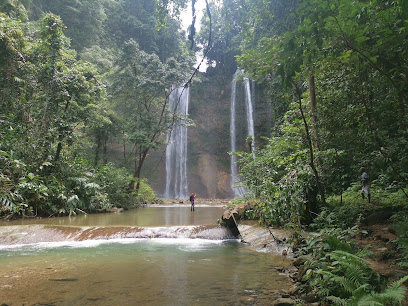
Roderick Bay Hideaway
Discover the tranquility of Roderick Bay Hideaway, a hidden gem in Baroni, perfect for relaxation and immersion in natural beauty.
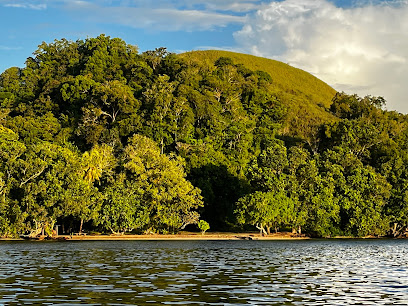
Green Beach
Experience the untouched beauty of Green Beach, a tranquil haven in Tanaghai, perfect for relaxation and nature exploration.

Tataabau Waterfall
Explore the enchanting Tataabau Waterfall in Sulofoloa, a hidden hiking area that offers breathtaking views and a tranquil retreat in nature.
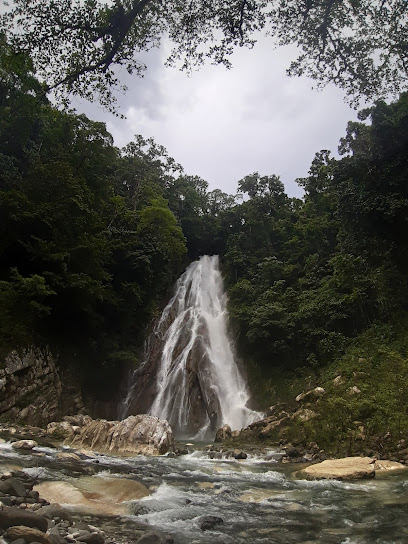
Ferafolia Forest Trail
Explore the enchanting Ferafolia Forest Trail in Buma, where adventure meets the tranquility of nature in the Solomon Islands.
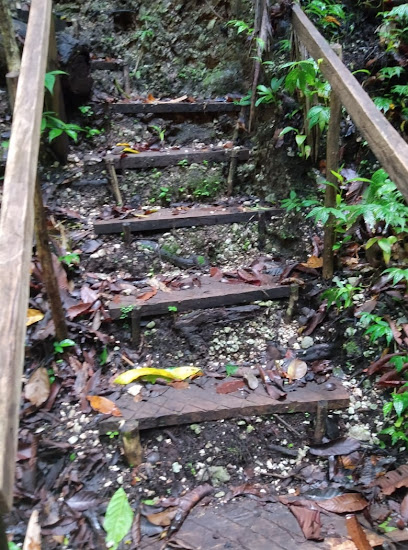
Ferafolia Forest Deck
Explore the serene beauty of Ferafolia Forest Deck, a breathtaking escape into Tjuni's lush landscapes and vibrant wildlife, perfect for relaxation and adventure.
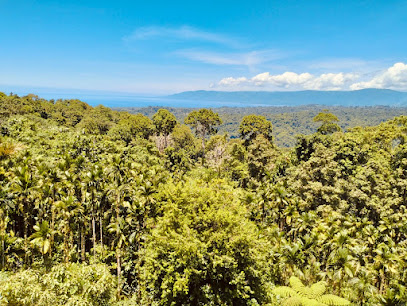
The Bastion
Discover The Bastion in Mbelaha, a tranquil park surrounded by lush landscapes and rich wildlife, perfect for relaxation and outdoor adventures.
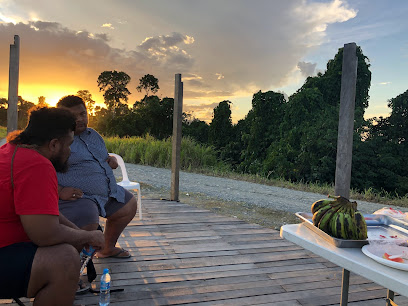
Tasi Beach
Discover the pristine beauty of Tasi Beach in Ruaniu, a tranquil paradise perfect for swimming, snorkeling, and unforgettable sunsets.

Tanahoru Beaches (Kakambona)
Experience breathtaking sunsets and serene shores at Tanahoru Beaches in Kakambona, a perfect escape for relaxation and adventure.

Tana Beach
Experience the beauty of Tana Beach in Ruaniu, a hidden paradise perfect for relaxation and adventure in the Solomon Islands.

rogando reef
Explore the stunning underwater world of Rogando Reef in Mbaole, a tropical paradise for snorkeling and diving enthusiasts.

Essential places to dine
Taste & Traditions
Experience authentic Solomon Islands cuisine at Taste & Traditions in Honiara - where every meal tells a story.
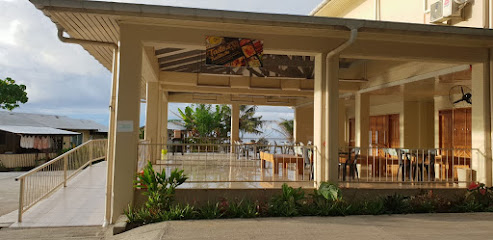
The Food Alley
Discover diverse flavors at The Food Alley in Honiara - where local cuisine meets international delights in a vibrant atmosphere.
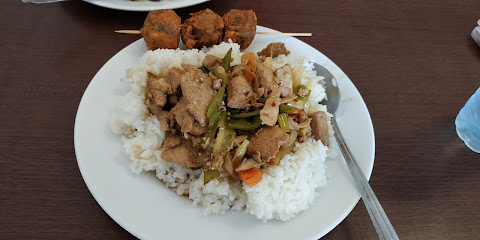
A & F Restaurant
Experience the best of Indian, Bangladeshi, and Solomon Island cuisine at A & F Restaurant in Honiara - a must-visit culinary destination.

Fun Café
Discover delicious local flavors at Fun Café in Honiara - where every meal tells a story of the Solomon Islands' rich culinary heritage.
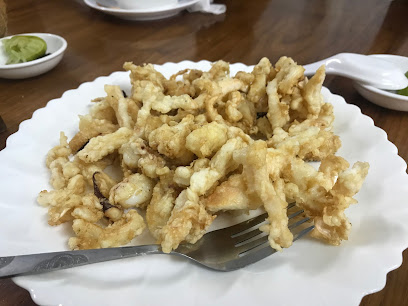
Pacific Seafood Restaurant
Experience authentic seafood delicacies at Pacific Seafood Restaurant in Honiara, showcasing fresh catches from local waters in a vibrant setting.
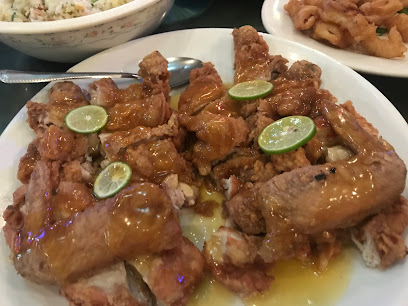
Markets, malls and hidden boutiques
Honiara Central Market
Discover the vibrant life of the Solomon Islands at Honiara Central Market, where fresh produce, local crafts, and culture come together in a bustling atmosphere.
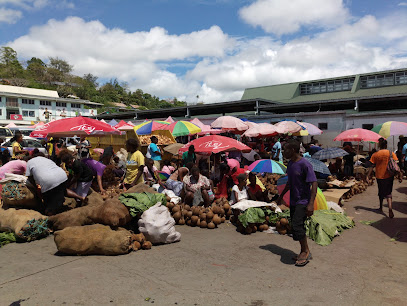
Bulk Shop
Explore Bulk Shop in Honiara for an extensive selection of groceries, local delicacies, and essentials, making your stay enjoyable and convenient.
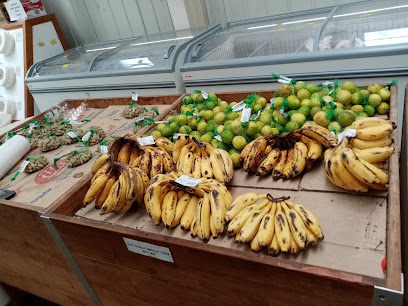
Capital Park
Discover the charm of Capital Park in Honiara, where local culture meets stunning coastal views and delicious cuisine.
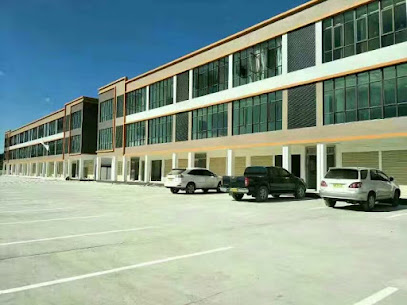
Bulk Shop - NPF Plaza
Discover the vibrant local shopping experience at Bulk Shop - NPF Plaza in Honiara, a supermarket filled with local flavors and essentials.
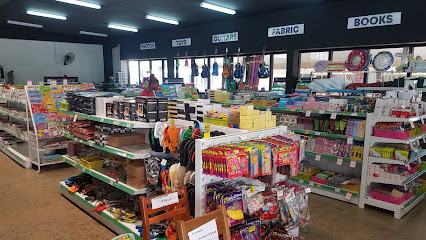
Bulk Shop - KGVI Branch
Explore local flavors and essential supplies at the Bulk Shop - KGVI Branch in Honiara, your go-to grocery store during your Solomon Islands adventure.

Pacific Clothing
Explore fashionable and affordable clothing at Pacific Clothing in Honiara's vibrant Chinatown, a must-visit for every traveler.
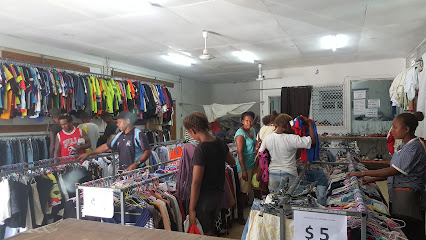
AJ CITY MALL
Explore AJ City Mall in Lungga for a vibrant shopping and dining experience, showcasing local culture and a variety of stores.
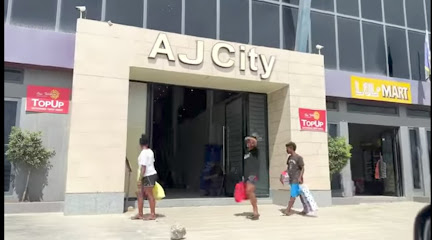
Island Deals
Discover the latest in electronics at Island Deals, Honiara's premier hub for quality gadgets and accessories, where technology meets local charm.
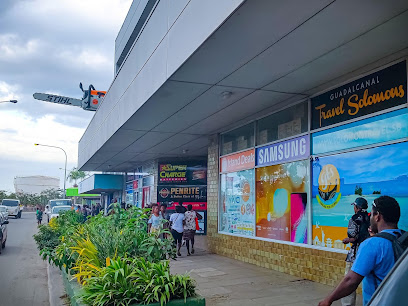
Latif General Store
Experience the local charm of Honiara at Latif General Store, where authentic flavors and everyday life collide in a delightful grocery shopping experience.

Nifty Cake & Fashion
Discover the sweet side of Honiara at Nifty Cake & Fashion, where delightful pastries and custom cakes await every dessert lover!
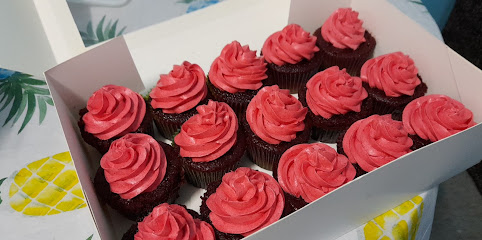
Mbokanavera one neiko store
Discover the flavors of the Solomon Islands at Mbokanavera One Neiko Store - your local grocery stop in Honiara.
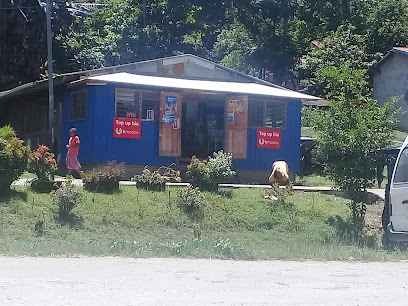
Jony Store
Discover the authentic taste of GPPOL 2 at Jony Store, your local grocery haven for fresh produce and unique snacks.

Maetala store
Experience the heart of Honiara at Maetala Store, a vibrant convenience store offering local snacks and essentials for every traveler.

Baegu Store
Discover the charm of Baegu Store in Honiara, a treasure trove of local goods and unique souvenirs reflecting the vibrant culture of the Solomon Islands.

H & D SHOP 2
Explore H & D Shop 2 in Honiara for local goods, snacks, and unique souvenirs, reflecting the vibrant culture of the Solomon Islands.
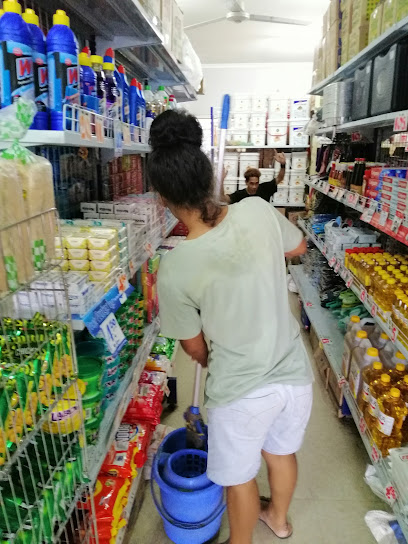
Essential bars & hidden hideouts
Point Cruz Yacht Club
Experience the vibrant atmosphere and stunning waterfront views at Point Cruz Yacht Club in Honiara, the perfect bar for relaxation and entertainment.
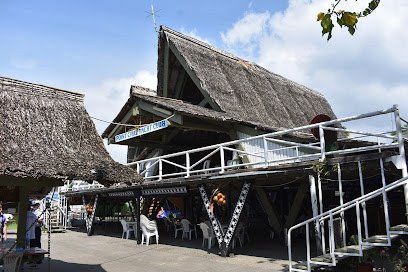
Monarch
Experience delicious grilled cuisine at Monarch Grill in Honiara, where local flavors meet a welcoming atmosphere for tourists and food lovers.
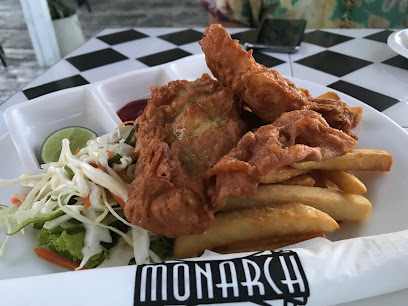
Local Fusion Cafe & Bar
Discover the best of local and international cuisine at Local Fusion Cafe & Bar in Honiara, where every meal is a culinary adventure.
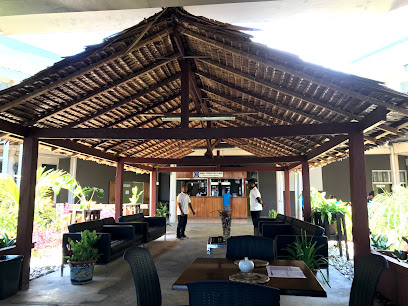
Club Havanah
Discover the essence of French cuisine at Club Havanah in Honiara, where exquisite flavors meet a charming atmosphere for an unforgettable dining experience.
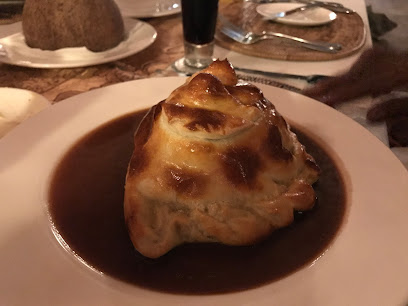
The Terrace
Experience the vibrant culinary scene at The Terrace in Honiara, where local flavors meet international cuisine in a stunning atmosphere.
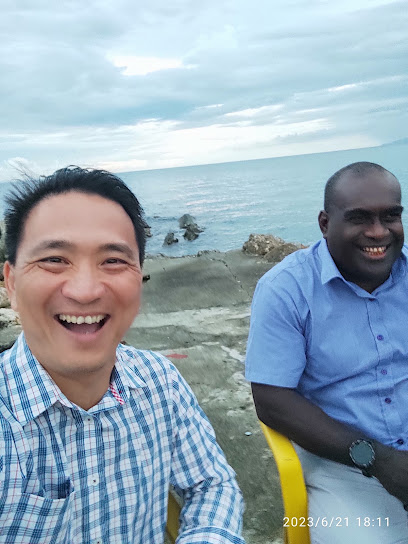
Chillers Bar
Experience the vibrant atmosphere and stunning river views at Chillers Bar in Honiara, a perfect retreat for relaxation and local culture.
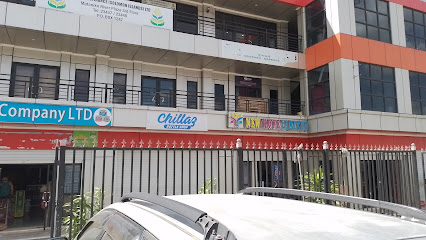
Sunset View Pub and Recreational
Experience breathtaking sunsets and local flavors at Sunset View Pub and Recreational, the perfect spot for relaxation in Mbelaha.
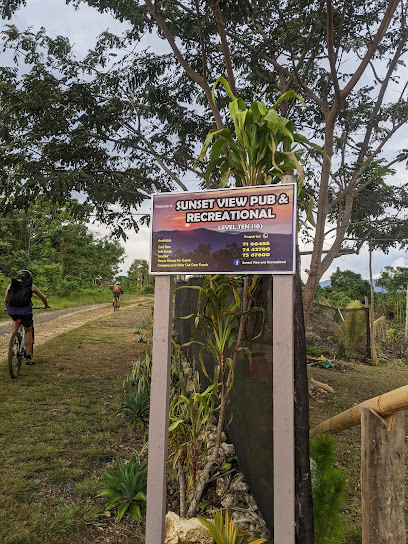
Canoe Bar
Experience the vibrant atmosphere and stunning views at Canoe Bar in Honiara, a must-visit destination for every traveler seeking local culture.
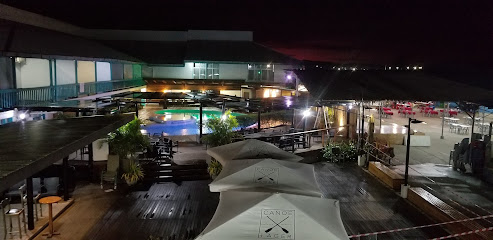
Tariu Kava bar
Discover the authentic taste of Solomon Islands at Tarui Kava Bar, a cultural haven for kava lovers in Honiara.
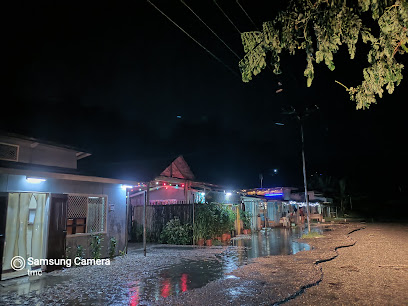
Solomon Fried Chicken (Indonesia Food)
Experience the authentic flavors of Indonesia at Solomon Fried Chicken in Lungga, where every bite of fried chicken tells a story.
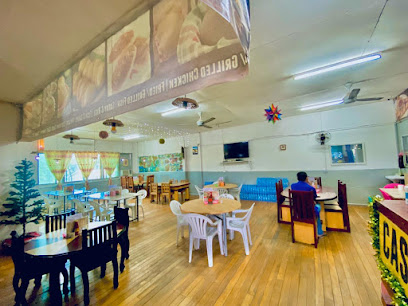
Lowprice enterprise ltd
Discover the lively spirit of Honiara at Lowprice Enterprise Ltd, where refreshing drinks and friendly faces create an unforgettable bar experience.

Eyes Pub
Discover the vibrant nightlife at Eyes Pub, a local bar in Honiara, perfect for enjoying drinks and mingling with friendly locals.
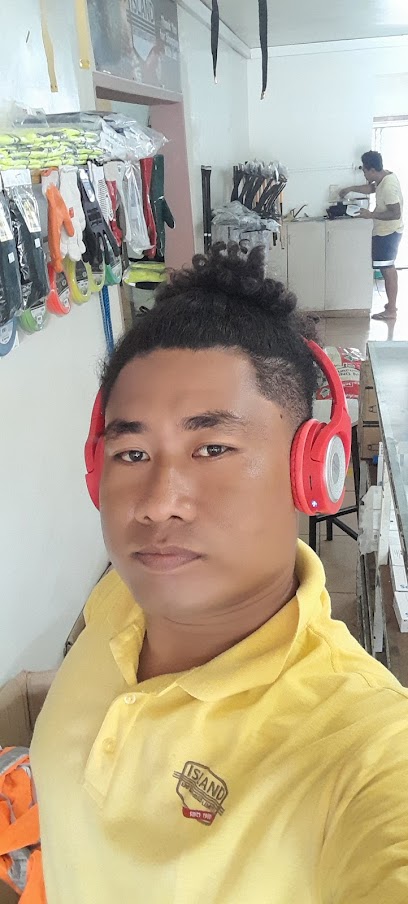
The Pagoda
Experience the vibrant atmosphere of The Pagoda in Lungga, where local culture meets tropical drinks for an unforgettable night out.
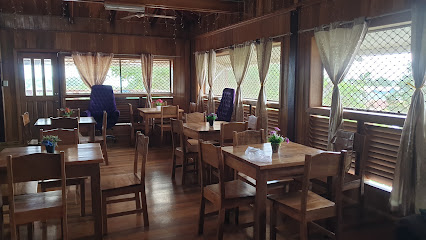
Chief's House
Discover the vibrant culture and local flavors at Chief's House, a must-visit bar in the heart of Honiara, Solomon Islands.

Cheifs Haus bar
Discover the lively atmosphere and local flavors at Cheifs Haus Bar in Honiara, a perfect spot for relaxation and socializing.

Local Phrases about Malaita Province
-
- HelloKoali
[ko-a-li] - GoodbyeKokotu
[ko-ko-tu] - YesOo
[oo] - NoAa
[aa] - Please/You're welcomeFoloku
[fo-lo-ku] - Thank youFiriato
[fi-ri-a-to] - Excuse me/SorryUfau
[u-fau] - How are you?E i haurau?
[e i ha-u-rau] - Fine. And you?Haurau. E haurau ko?
[hau-rau. e ha-u-rau ko] - Do you speak English?E taukoi e Engaresi?
[e tau-ko-i e en-ga-re-si] - I don't understandE saharia au
[e sa-ha-ri-a au]
- HelloKoali
-
- I'd like to see the menu, pleaseE haukoi e mami, fakatala
[e hau-ko-i e ma-mi, fa-ka-ta-la] - I don't eat meatE saharia au kaai
[e sa-ha-ri-a au ka-ai] - Cheers!Kotolahi!
[ko-to-la-hi] - I would like to pay, pleaseE haukoi e soli, fakatala
[e hau-ko-i e so-li, fa-ka-ta-la]
- I'd like to see the menu, pleaseE haukoi e mami, fakatala
-
- Help!Fakaau!
[fa-ka-au] - Go away!Lauki!
[lau-ki] - Call the Police!Fakaau e Polisi!
[fa-ka-au e po-li-si] - Call a doctor!Fakaau e doketa!
[fa-ka-au e do-ke-ta] - I'm lostE saharia au kae
[e sa-ha-ri-a au ka-e] - I'm illE saharia au hoau
[e sa-ha-ri-a au ho-au]
- Help!Fakaau!
-
- I'd like to buy...E haukoi e faa...
[e hau-ko-i e fa-a] - I'm just lookingE haukoi e tata
[e hau-ko-i e ta-ta] - How much is it?Ke haere e firi?
[ke ha-e-re e fi-ri] - That's too expensiveKe hano loa
[ke ha-no lo-a] - Can you lower the price?E taukoi e firi sahu?
[e tau-ko-i e fi-ri sa-hu]
- I'd like to buy...E haukoi e faa...
-
- What time is it?Ke haere e hae?
[ke ha-e-re e ha-e] - It's one o'clockE hae e tahi
[e ha-e e ta-hi] - Half past (10)Hae e hae (10)
[ha-e e ha-e (10)] - MorningMauri
[mau-ri] - AfternoonIeie
[ie-ie] - EveningMalamalama
[ma-la-ma-la-ma] - YesterdayHaeie
[hae-ie] - TodayHae
[hae] - TomorrowHaeata
[hae-a-ta] - 1Tahi
[ta-hi] - 2Rua
[ru-a] - 3Toru
[to-ru] - 4Fa
[fa] - 5Rima
[ri-ma] - 6Ono
[o-no] - 7Fitu
[fi-tu] - 8Valu
[va-lu] - 9Hiva
[hi-va] - 10Sepulu
[se-pu-lu]
- What time is it?Ke haere e hae?
-
- Where's a/the...?Ke hae e...?
[ke ha-e e] - What's the address?Ke hae e fuka hae?
[ke ha-e e fu-ka ha-e] - Can you show me (on the map)?E taukoi e fakaau mai (i te maapa)?
[e tau-ko-i e fa-ka-au ma-i (i te ma-a-pa)] - When's the next (bus)?Ke hae e hae ingaau (pasi)?
[ke ha-e e ha-e in-ga-au (pa-si)] - A ticket (to ....)E haukoi e tikit (ki ...)
[e hau-ko-i e ti-kit (ki)]
- Where's a/the...?Ke hae e...?
History of Malaita Province
-
Before European contact, Malaita Province was home to a rich and diverse Melanesian culture. The island's traditional society was organized around extended family groups, with social structures deeply rooted in clan and tribal affiliations. The people of Malaita were skilled in agriculture, fishing, and navigation, with intricate knowledge of their natural environment. They also practiced elaborate customs and rituals, many of which are still observed today.
-
The first European to sight Malaita was Spanish navigator Álvaro de Mendaña in 1568. However, significant European interaction began in the late 19th century when British and German traders arrived. The island became part of the British Solomon Islands Protectorate in 1893. During the colonial period, Malaitans were heavily recruited as laborers for plantations in other parts of the Solomon Islands and Australia. This period also saw the introduction of Christianity, which has since become a major influence on the island's culture.
-
The Maasina Ruru movement, also known as the Marching Rule, was an indigenous social and political movement that emerged in Malaita in the 1940s. It was a response to colonial rule and aimed to improve the social and economic conditions of the islanders. The movement called for greater autonomy and self-governance. Though it was suppressed by the British authorities, it laid the groundwork for future nationalist movements and the eventual independence of Solomon Islands in 1978.
-
World War II had a significant impact on Malaita Province. The island served as a strategic location for both Allied and Japanese forces. While it was not a major battleground, the presence of foreign troops brought about social and economic changes. Malaitans were employed as laborers and scouts, and the war effort led to infrastructure developments, including airstrips and roads. The post-war period saw increased political awareness and a push for independence.
-
Following Solomon Islands' independence in 1978, Malaita has undergone various social and economic changes. The province has faced challenges such as limited infrastructure, but it remains a vital part of the nation's economy and culture. Malaita is known for its strong adherence to traditional customs and its significant contributions to the national labor force. Modern Malaita continues to balance traditional values with the pressures of modernization.
-
Malaita is renowned for its rich cultural heritage and vibrant festivals. The island's traditional music, dance, and art are celebrated through various events and ceremonies. The 'Are'are people, in particular, are famous for their panpipe music, which has gained international recognition. Festivals such as the Kwaio Festival showcase the island's unique customs, including traditional dances, feasts, and rituals. These cultural expressions are a testament to Malaita's enduring heritage.
Malaita Province Essentials
-
Malaita Province is accessible primarily through the Solomon Islands' capital, Honiara, located on Guadalcanal Island. The Honiara International Airport (HIR) offers flights from multiple international destinations. From Honiara, you can take a domestic flight to Auki Airport (AKS) on Malaita. Alternatively, there are ferry services from Honiara to various ports in Malaita, including Auki and Malu'u. The ferry journey can take several hours but offers a scenic view of the islands.
-
Within Malaita Province, transportation options include minibuses, taxis, and motorized canoes for shorter trips between villages. Minibuses are the most common form of public transport and are relatively inexpensive. Taxis are available in larger towns like Auki. For exploring remote areas or neighboring islands, hiring a motorized canoe is often necessary. Car rentals are available but less common, and the road conditions can be challenging.
-
The official currency of the Solomon Islands is the Solomon Islands Dollar (SBD). Credit cards are accepted in some hotels, restaurants, and shops, but it is advisable to carry cash, especially in smaller establishments and rural areas. ATMs are available in Auki, but it's wise to withdraw sufficient cash before traveling to more remote areas. Traveler's cheques are not widely accepted.
-
Malaita Province is generally safe for tourists, but standard precautions should be taken. Avoid walking alone at night in unfamiliar areas and keep an eye on your belongings in crowded places. While there are no specific high-crime areas targeting tourists, staying vigilant and aware of your surroundings is always best practice. Be cautious when traveling to very remote areas and seek local advice.
-
In case of emergency, dial 999 for immediate assistance. Medical facilities are available in Auki and other major towns. It is strongly recommended to have travel insurance that covers medical emergencies. For minor health issues, pharmacies are available in larger towns where you can purchase over-the-counter medications. Always carry a basic first aid kit when traveling to remote areas.
-
Fashion: Do dress modestly, especially in villages. Avoid wearing revealing clothing. Religion: Do respect local customs and traditions. Always ask for permission before taking photos of people or religious sites. Public Transport: Do be respectful and give up your seat to elderly passengers. Don't eat or drink on public transport. Greetings: Do greet people with a smile and a nod. A handshake is common in more formal situations. Eating & Drinking: Do try local delicacies and accept food offerings graciously. Don't refuse hospitality, as it is considered impolite.
-
To experience Malaita Province like a local, visit the local markets where you can buy fresh produce and traditional Solomon Island crafts. Engage with locals, as they are often friendly and willing to share stories about their culture and history. Don't miss the traditional 'Auki' dances and music performances. For a unique experience, participate in a fishing expedition with local fishermen or explore the pristine coral reefs through snorkeling or diving.
Nearby Cities to Malaita Province
-
Things To Do in Tulagi
-
Things To Do in Honiara
-
Things To Do in Yandina
-
Things To Do in Gizo
-
Things To Do in Taro Island
-
Things To Do in Lata
-
Things To Do in Arawa
-
Things To Do in Sola
-
Things To Do in Luganville
-
Things To Do in Norsup
-
Things To Do in Lakatoro
-
Things To Do in Kokopo
-
Things To Do in Rabaul
-
Things To Do in Lamap
-
Things To Do in Yaren




